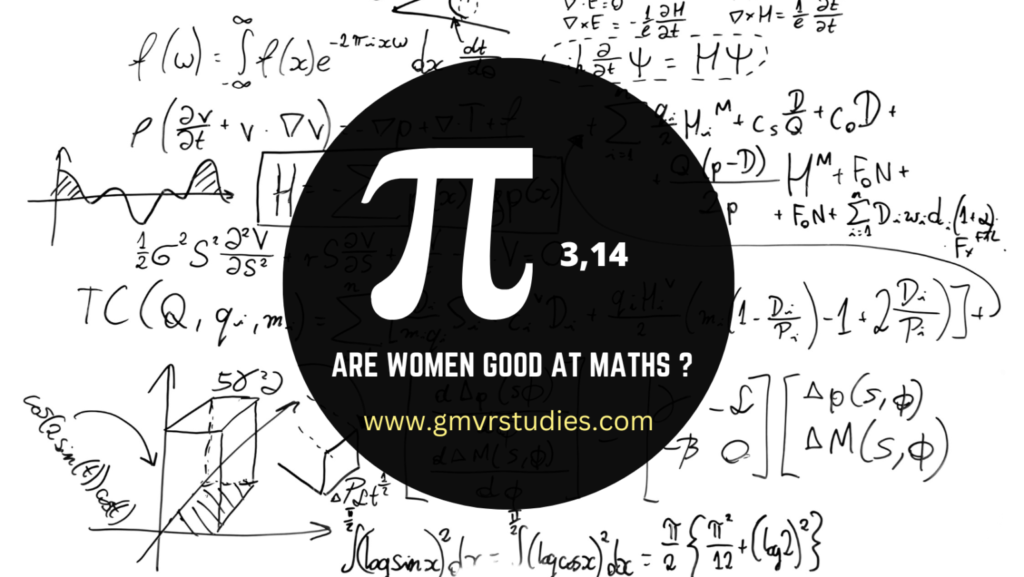
- Posted by MASTER VIKRANT ROHIN
In Europe, some prominent female mathematicians rose to prominence in the 18th and 19th centuries. Yet, the area of mathematics is still dominated by men.
The 2019 Royal Institution Christmas lectures will be delivered by Hannah Fry, an associate professor at University College London who specializes in the mathematics of cities. Fry is unquestionably a wise candidate to explain such a complex topic to a lay audience. She is one of the few mathematicians with recognition outside of the ivory tower thanks to her numerous BBC appearances and YouTube appearances. She has written ten academic papers in addition to three best-selling books, according to her resume. Since 1825, the Institution has held annual science lectures; Fry’s discussion will be just the fourth to focus on math-related topics.

A DOCTOR OF MATHEMATICS OATH
The lectures Fry gives seem to be more intended to caution people against mathematics than to praise it, or at least that is how her subject is presented. She will be looking at “how our unflinching faith in numbers may lead to tragedy when we get the sums wrong,” as well as “important ethical dilemmas,” like “Are there some problems arithmetic can’t or shouldn’t solve?” She makes the case that mathematicians should be required to sign an oath similar to the Hippocratic Oath, which doctors take, in an interview with The Guardian.
Now, Fry is the furthest thing from an ideologist. Her book, The Mathematics of Love, is actually objective, funny, and statistically accurate; it has none of the typical defects that characterize many third-wave feminist tracts. Why then, without even pausing to think, did Fry use such racist and misogynistic language? She may have a different understanding of privilege because she is a minority woman who belongs to a very exclusive male group.
Even the most accomplished female mathematicians prefer to blame masculine bias for the gender gap in mathematics, notwithstanding their outstanding achievement in their chosen subject. Karen Uhlenbeck, who in
I’m still shocked by how few women are in leadership roles and in the field of mathematics. This is, in my opinion, primarily because of the culture within the mathematical community as well as strong external social influences.
Is this supported by the research? Hypatia of Alexandria, who lived 1600 years ago, is often regarded as the first female mathematician in history, although under the allegedly rigid patriarchy of Europe, several prominent women mathematicians only appeared in the 18th and 19th centuries.
MATHEMATICIANS WHO ARE WOMEN
These included Emmy Noether (1882-1935), a German mathematician who worked on non-commutative algebras, hyper-complex numbers, and commutative rings and received the Ackermann-Teuber Memoria; Sophie Germain (1776-1831), the first woman to be awarded by the Paris Academy of Sciences in 1816 for her paper on elasticity theory; and Maria Agnesi (1718-1799), an Italian philosopher and mathematician who was the first woman to. The fact that these women’s work was acknowledged centuries ago implies that the prejudice myth is at least somewhat overblown, as excellent mathematical aptitude is always rare.
Yet, it is still true that women are underrepresented in STEM fields, particularly in high-level mathematics, despite decades of dedicated initiatives to encourage them to do so. Even when those lists are created by female mathematicians or left-leaning newspapers, they rarely, if ever, include any women among the top mathematicians in the world.
In fact, feminist websites frequently swell their lists of female mathematicians by adding famous people like Big Bang actress Mayim Bialik, whose PhD is in neuroscience rather than mathematics, Channel 4 presenter Rachel Riley, who only has an undergraduate degree in the field, and even Nobel Peace Prize winner Malala Yousafzai, who only completed A-Level math.
Feminist websites frequently bloat their lists of female mathematicians by including famous people like Big Bang actress Mayim Bialik, whose PhD is in neuroscience rather than mathematics, Channel 4 presenter Rachel Riley, who only has an undergraduate degree in the field, and even Nobel Peace Prize winner Malala Yousafzai, who only completed A-Level math.
The best evidence points to the fact that elite mathematicians are more likely to be born boys than girls and that societal variables do explain certain gender inequalities. Diane F. Halpern and her colleagues note in a 2008 essay in Scientific American that on the American Scholastic Aptitude Tests (SATs), twice as many boys as girls score 500 or above on the math portion, and there are 13 times as many boys with scores of at least 700. Diane F. Halpern is likely the second-leading researcher in the world on cognitive sex differences (after Simon Baron-Cohen).

HALPERN ET AL. CLAIM:
A differential of around 40 points has been sustained over 35 years because boys do better on the SAT’s math section.
The average quantitative ability gap between boys and girls is actually very modest. Boys differ from girls in that they are more likely to be gifted in mathematics.
Hence, we find that less than 20% of female students in the UK pursue engineering or computer science, and less than 40% pursue mathematics. For post-graduate students, there is a three to four-times greater gender gap. And because both sexes favour careers in domains in which they excel, women and men pursue various career paths. According to a 2014 US study that followed an elite group of mathematically talented 13-year-old boys and girls through adulthood:
As a result, The Guardian claims that Ms. Fry wants mathematicians to sign an ethical oath that will help diversify the discipline, which is dominated by white (and Asian) men.
Would Albert Einstein have suppressed E=mc2 if he had heeded this advice?

- S

